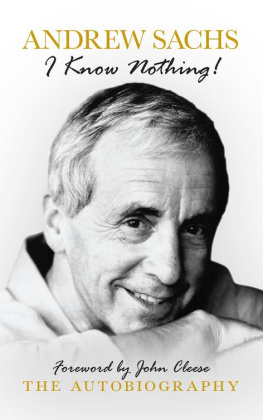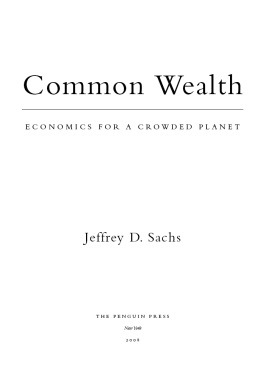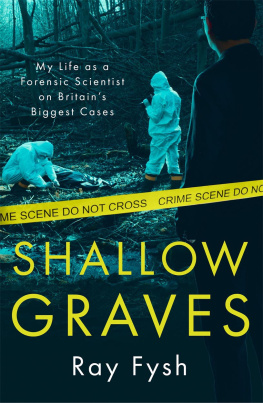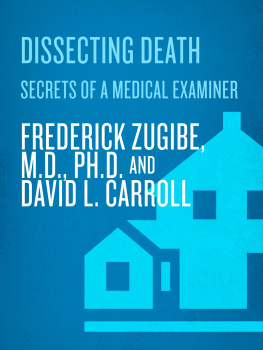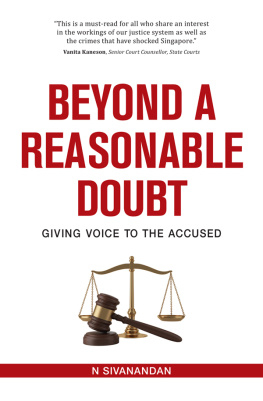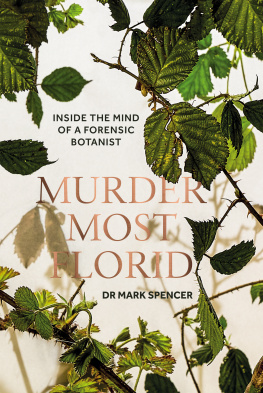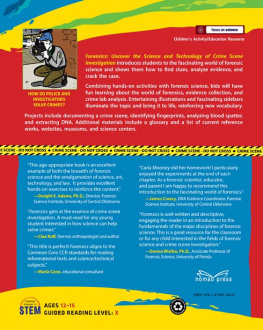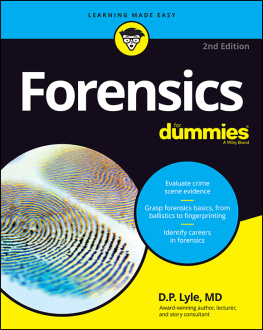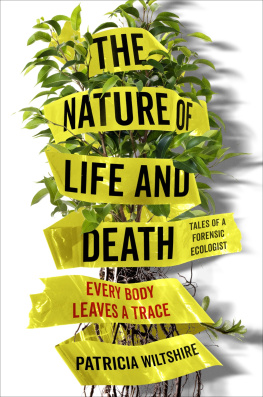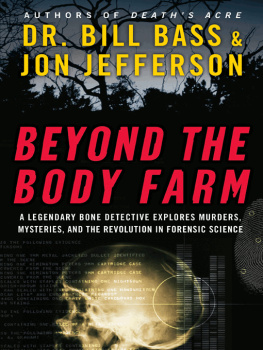CORPSE
CORPSE
Nature, Forensics,
and the Struggle to
Pinpoint Time of Death
JESSICA SNYDER SACHS

A Member of the Perseus Books Group
New York
Many of the designations used by manufacturers and sellers to distinguish their products are claimed as trademarks. Where those designations appear in this book, and where Basic Books was aware of a trademark claim, the designations have been printed in initial capital letters.
Copyright 2001 by Jessica Snyder Sachs
Previously published by Perseus Publishing
Published by Basic Books, A Member of the Perseus Books Group
All rights reserved. No part of this publication may be reproduced, stored in a retrieval system, or transmitted, in any form or by any means, electronic, mechanical, photocopying, recording, or otherwise, without the prior written permission of the publisher.
Cataloging-in-Publication Data is available from the Library of Congress
ISBN-13 9780465044856
Find us on the World Wide Web at http://www.basicbooks.com.
Books published by Basic Books are available at special discounts for bulk purchases in the United States by corporations, institutions, and other organizations. For more information, please contact the Special Markets Department at the Perseus Books Group, 11 Cambridge Center, Cambridge, MA 02142, or call (800) 255-1514 or (617) 252-5298, or e-mail .
Set in 11-point Fairfield Light by the Perseus Books Group
This book is dedicated to the memory of Greg Pearson (19321989), first-class journalist, uncompromising teacher, and beloved mentor,
and
Lamar Meek (19442000),
forever a gentleman and a scholar.
CONTENTS
T HE NAMES OF my many coauthors could never fit on a book jacket, let alone a single page. I can only begin to thank the scores of scientists, librarians, and media information specialists who graciously submitted themselves to my endless questions and requests for obscure historical and scientific information. Special thanks go to the pathologists, anthropologists, entomologists, and botanists who have reviewed my accounts of their work. Any inaccuracies that have managed to survive their vetting remain utterly my own. For reasons unknown but greatly appreciated, several of these researchers have taken an extraordinary interest in my work, with patient tutoring and feedback that goes far beyond their too-brief mention in the text. They include most especially Germanys peerless Herr Maggot, Mark Benecke, Virginia Commonwealth Universitys Jason Byrd, Rob Hall of the University of Missouri, Wild Man Neal Haskell of Saint Josephs College, and retired USDA entomologist Jerry Payne.
Thanks also go out to Joyce Adkins, widow of the late forensic entomologist Ted Adkins, for trusting me with her husbands papers and David Faulkner, of the San Diego Natural History Museum, for trusting me with his own; Tracy Cyr for our e-mail discussions of insect minutiae; forensic anthropologists Bill Bass, William Haglund, and Clyde Snow for the delightful ways they spin their tales; forensic pathologists Werner Spitz, Jay Dix, and Stephen Cina for revealing the imperfections as well as the strengths of their science; and Regius Professor Peter Vanezis of the University of Glasgow for sharing the nineteenth-century history of his great institution. Invaluable research assistance came my way from the public relations departments of the University of Illinois at Chicago, Washington State University at Pullman, and Clemson University, as well as Professor Hassan A. Babaei of Georgia State University, Sarah Goodwin of Emory University, and the reference service of the Atlanta-Fulton Public Libraries.
On the literary side of this endeavor, my thanks go out to my wonderful agent, Regula Noetzli, who risked alienating her many publishing contacts by raising this books grisly subject matter over lunch at many fine Manhattan restaurants, and to my amazing editor at Perseus, Amanda Cook, who saw past the disgust factor to grasp the potential beauty of this book, came up with the perfect name for it, and patiently forged an author out of a journalist. I also wish to thank former Discover/Science Digest colleague Jeffrey Kluger (Apollo 13, Journey Beyond Selene) for helping me navigate the ethical minefield of re-creating history from the fading memories of its participants and their survivors.
Finally and most important, my intermingled love and gratitude go to my parents for their encouragement, to my daughter Eva for her never-ending delight in the little grubbies, and to my soul mate Gary, for tolerating the parade of odious photos across my desk as well as my newfound interest in flies on dead squirrels and picnic plates.
CORPSE
O N THE EVENING of November 8, 1983, friends and relatives of Susan Hendricks were reeling from the news that police had found the soft-spoken woman and her three young children hacked to death in their beds. What could they say to David, the affectionate husband and doting father, who had just arrived home from an out-of-town business trip to find squad cars swarming around his home in the suburbs of Bloomington, Illinois? Their shock was only compounded when police let it be known that David Hendricks was their prime suspect.
Theres just no way David could kill those children or Susie, the childrens stunned grandmother told a reporter as she watched two hearses pull out of the family driveway, orange body bags visible through the long, tinted windows. He loves them. Theyre a perfect family.
In the sensational murder trial that followed, relatives on both sides of the Hendricks family as well as members of their close-knit Christian fellowship rallied behind the accused. They described a considerate husband and charitable businessman who had recently thrilled his wife with a romantic tenth wedding anniversary trip to England and who funneled tens of thousands of dollars to the needy from the sales of his patented orthopedic braces. Neighbors described how, the evening before the murders, Hendricks had taken his children to see his nine-year-old, oldest daughter Beckys prize-winning artwork hanging at a local mall, then to Chuck E. Cheese Pizza Time Theater, where food was secondary to the raucous indoor playground.
After putting his children to sleep that night, Hendricks testified, he had waited for his wife to come home from a baby shower, kissed her good-bye around 11 P.M., then drove through the night to Wisconsin, where hed spent the next day making sales calls. The real killer or killers, Hendrickss defense attorneys claimed, had slipped into the house through an unlocked door sometime after midnight and slaughtered Susan and the three children in a burglary rampage. Still on the loose, the cold-blooded killers presented a clear and alarming danger to unsuspecting families everywhere.
Police and prosecutors painted a very different picture. Hendricks, they argued, had carefully planned the murders, killed his family as they slept, ransacked his own home to make it look like burglary, then coolly drove away from the carnage. That no fingerprints were found on the murder weaponsan ax from the garage and a butcher knife from the kitchenonly supported their contention that this was a premeditated murder. Hendrickss motive: freedom from the constricting bonds of marriage without sacrificing his high standing in a church group that forbid divorce except in cases of adultery. As evidence of Hendrickss double life, the police found several women whom he had hired to model his back braces for advertising brochureswomen who said Hendricks had touched them in ways that made them feel uncomfortable. As further evidence of Hendrickss secret desires, the prosecution focused attention on his recent weight loss, new hairstyle, and sudden interest in fashionable clothes. Police also described the creepy calm with which Hendricks had received the news of his familys slaughter.
Next page


